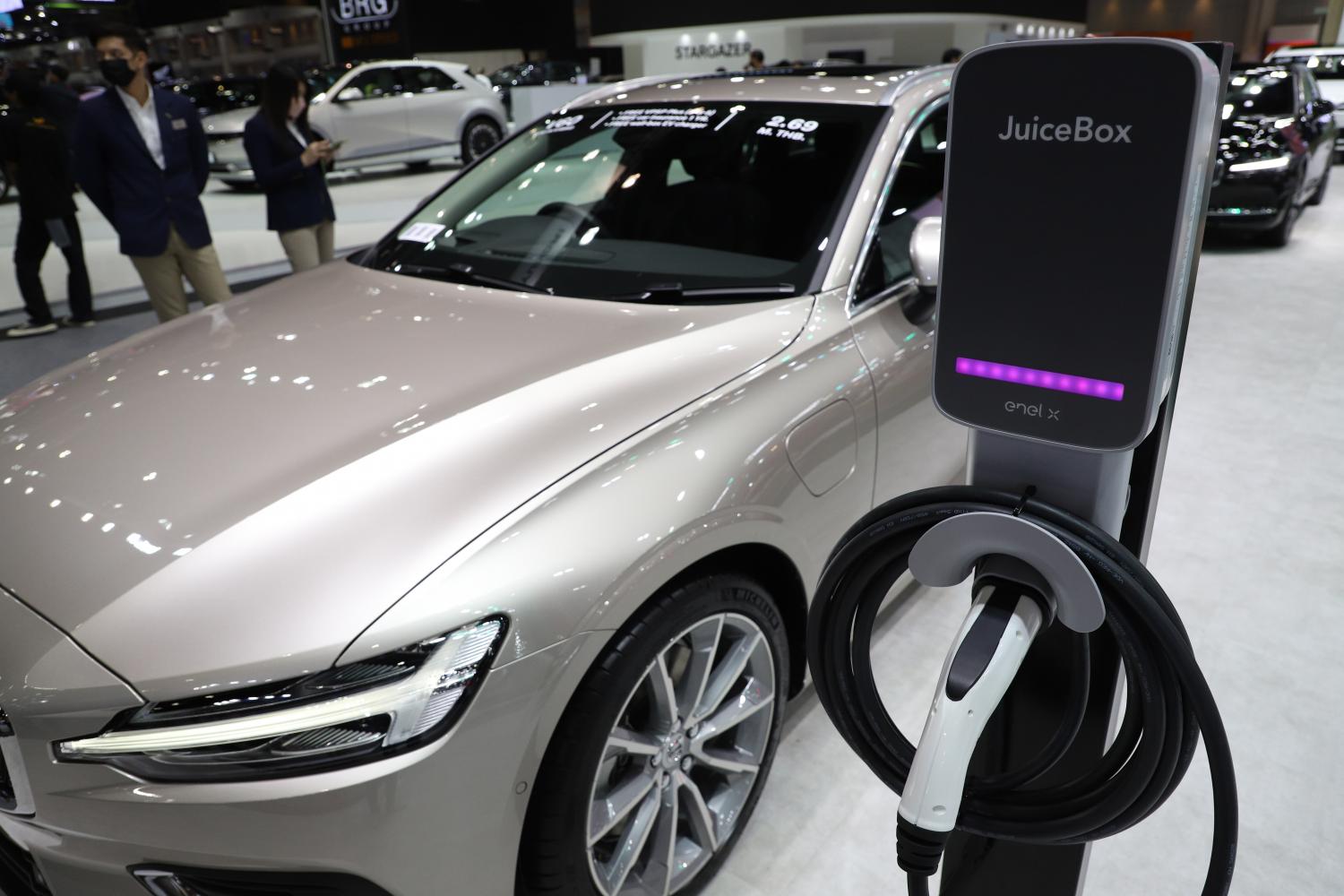
The Excise Department plans to ask for an additional government budget of 3 billion baht to subsidise the use of electric vehicles (EVs) in the state EV subsidy scheme, in line with the rising sales volume, says deputy director-general Kriengkrai Pattanaporn.
The department has received a budget of 2.9 billion baht from the government to fund the subsidy programme, of which 807 million baht has been disbursed.
The disbursement was paid for 5,200 electric cars and 1,370 electric motorcycles.
The department plans to disburse another 395 million baht from the remaining budget.
However, the department assessed higher EV sales this year and next based on accelerated delivery of EVs by various automakers.
As a result, the department believes a budget of 2.9 billion baht is inadequate for increased EV demand and plans to request an additional 3 billion from the government.
The department estimates from 2022-25 bookings of EVs under the subsidy scheme will total 50,000 units. This estimate means the budget framework of 40 billion baht set aside by the National EV Policy Committee to subsidise the purchase of EVs is sufficient, said Mr Kriengkrai.
The government offered subsidies to EV buyers to reduce prices. Purchasers of electric motorcycles are eligible for a subsidy of 18,000 baht per unit, while buyers of battery electric vehicles (BEVs) receive a subsidy of up to 150,000 baht per unit, depending on the size of the battery.
He estimates the number of EV makers participating in the subsidy scheme will continue to increase, particularly from 2024 when participants must begin domestic EV production to offset their imports, in accordance with the terms and conditions of the tax incentive scheme.
As the production of EVs has increased, prices are expected to decline. This should encourage more consumers to buy EVs, said Mr Kriengkrai.
The BEV promotion measures for 2024-25 are expected to be revised, with the National EV Policy Committee proposing the revisions to the new government for approval.
The committee also plans to ask the new government to consider an incentive package to encourage both domestic and foreign companies to set up EV battery factories in the country.
Chinese automaker BYD recently expressed interest in setting up a battery factory in Thailand.
The current excise tax on EV batteries is 8% of the product value.
Tax incentives to establish factories in Thailand apply to the production of EV lithium batteries with a lifespan of 8-10 years.
The factories must register with the Excise Department and must have a production and recycling system that is environmentally friendly.
The National EV Policy Committee wants Thailand to become a global production hub of EVs and EV parts.
According to the committee's goals, at least 30% of Thailand's total auto production is expected to be zero-emission vehicles by 2030.







